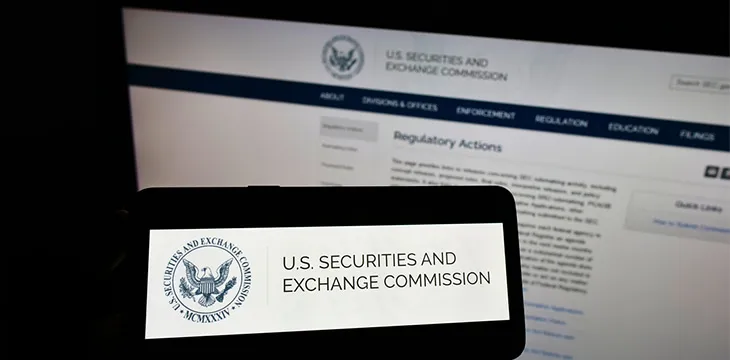|
Getting your Trinity Audio player ready...
|
The U.S. Securities and Exchange Commission (SEC) has announced charges against The Hydrogen Technology, the company behind the Hydro digital asset token, for securities violations. The watchdog also filed charges against South African market maker Moonwalkers, which it alleges was hired to illegally manipulate the market and prop up the Hydro price.
In its complaint, which it filed in the Southern District of New York, the SEC alleged that The Hydrogen Technology and its CEO Michael Ross Kane violated the registration and antifraud provisions of the securities laws. Tyler Ostern, the CEO of Moonwalkers, was charged with violating the market manipulation provisions of the securities laws.
According to the SEC, Kane and his company created the Hydro token in 2018 and then publicly distributed it through airdrops, bounty programs, employee compensation, and direct sales on exchanges. After distributing the token, Kane hired Moonwalkers “to create the false appearance of robust market activity for Hydro through the use of its customized trading software or “bot” and then selling Hydro into that artificially inflated market for profit on Hydrogen’s behalf.”
SEC alleges that the market manipulation earned Hydrogen over $2 million in profits.
The watchdog’s complaint sought permanent injunctive relief, civil penalties, disgorgement, prejudgment interest, and conduct-based injunctions.
SEC revealed that Ostern, the alleged market manipulator, consented to the judgment, ordering him to pay over $40,000 in disgorgement and prejudgment interest. He’ll also have to pay civil monetary penalties, which will be determined later by the court.
Kane, the founder of Hydro token, and his company dismissed the complaint, saying it “wholly lacks merit.” They vowed to fight the case in court.
“Companies cannot avoid the federal securities laws by structuring the unregistered offers and sales of their securities as bounties, compensation, or other such methods. As our enforcement action shows, the SEC will enforce the laws that prohibit such unregistered fund-raising schemes in order to protect investors,” commented Carolyn M. Welshhans, Associate Director of the SEC’s Enforcement Division.
The case could set a precedent for how U.S. regulators approach airdropped tokens. Airdrops are token distribution events where users usually get tokens for free. According to the SEC, despite the tokens being free, holders could still be violating securities laws, an interpretation that could have broad implications for millions of digital asset users.
In recent times, U.S. regulators have proven they are not afraid to make their own unique—and often controversial—interpretations of the law. The CFTC recently sued the members of a DAO who participated in at least one vote through the governance token, even if they voted for something as routine as a name change.
Watch: The BSV Global Blockchain Convention panel, Tokenizing Assets & Securities on Blockchain

 07-09-2025
07-09-2025 





